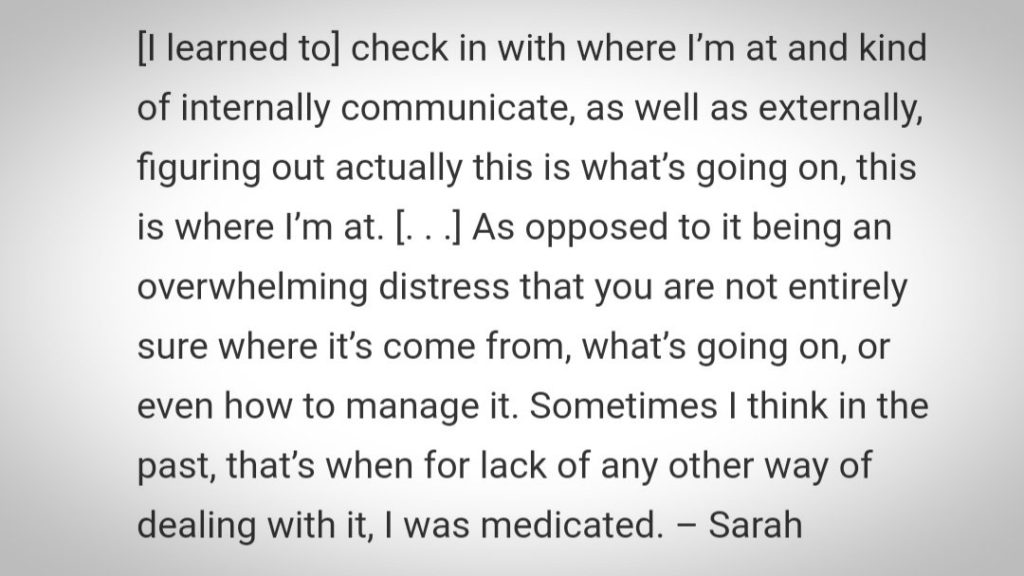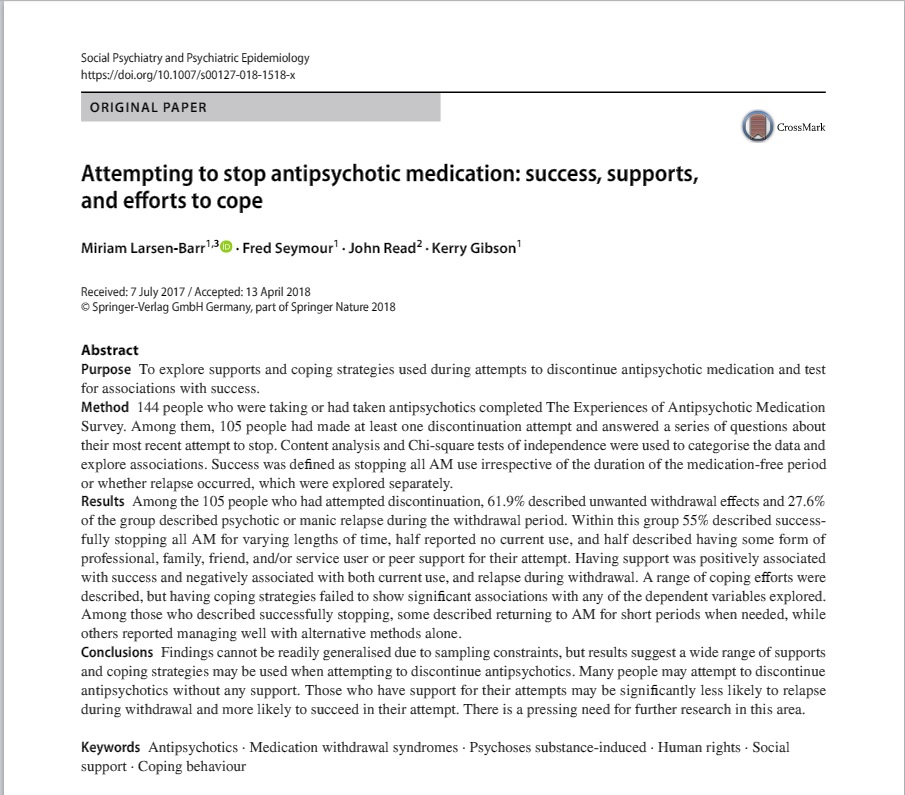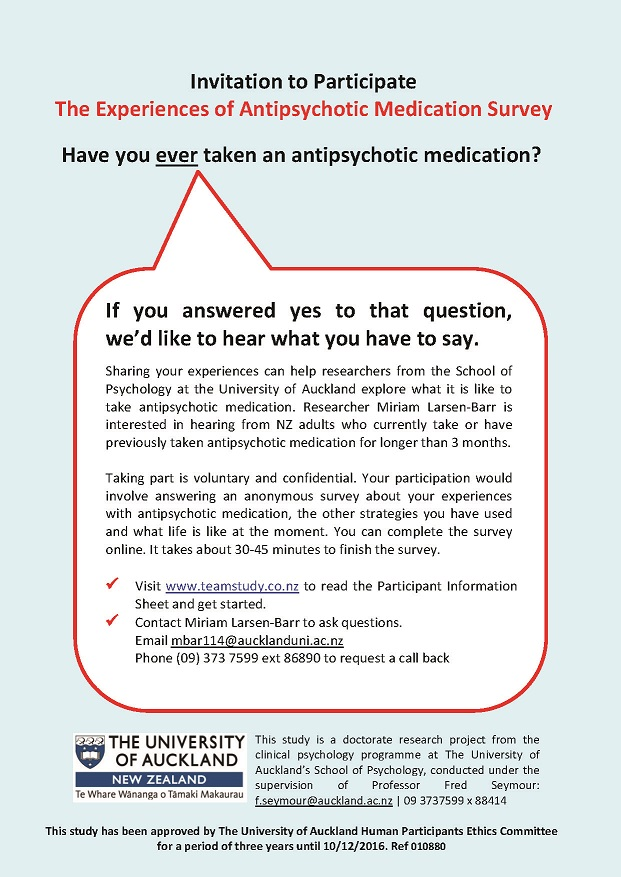My latest paper has just been published in the open access journal, Therapeutic Advances in Psychopharmacology, as part of their special collection on discontinuing psychotropic medication.
You can read the full text free here: Service-user efforts to maintain their wellbeing during and after successful withdrawal from antipsychotic medication (Larsen-Barr and Seymour, 2021).
Abstract
Background: It is well-known that attempting antipsychotic withdrawal can be a fraught process, with a high risk of relapse that often leads people to resume the medication. Nonetheless, there is a group of people who appear to be able to discontinue successfully. Relatively little is known about how people do this.
Methods: A convenience sample of adults who had stopped taking antipsychotic medication for more than a year were recruited to participate in semi-structured interviews through an anonymous online survey that investigated antipsychotic medication experiences in New Zealand. Thematic analysis explored participant descriptions of their efforts to maintain their wellbeing during and after the withdrawal process.
Results: Of the seven women who volunteered to participate, six reported bipolar disorder diagnoses and one reported diagnoses of obsessive compulsive disorder and depression. The women reported successfully discontinuing antipsychotics for 1.25–25 years; six followed a gradual withdrawal method and had support to prepare for and manage this. Participants defined wellbeing in terms of their ability to manage the impact of any difficulties faced rather than their ability to prevent them entirely, and saw this as something that evolved over time. They described managing the process and maintaining their wellbeing afterwards by ‘understanding myself and my needs’, ‘finding what works for me’ and ‘connecting with support’. Sub-themes expand on the way in which they did this. For example, ‘finding what works for me’ included using a tool-box of strategies to flexibly meet their needs, practicing acceptance, drawing on persistence and curiosity and creating positive life experiences.
Conclusion: This is a small, qualitative study and results should be interpreted with caution. This sample shows it is possible for people who experience mania and psychosis to successfully discontinue antipsychotics and safely manage the impact of any symptoms that emerge as a result of the withdrawal process or other life stressors that arise afterwards. Findings suggest internal resources and systemic factors play a role in the outcomes observed among people who attempt to stop taking antipsychotics and a preoccupation with avoiding relapse may be counterproductive to these efforts. Professionals can play a valuable role in facilitating change.











